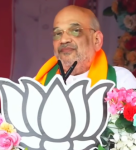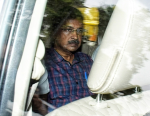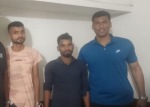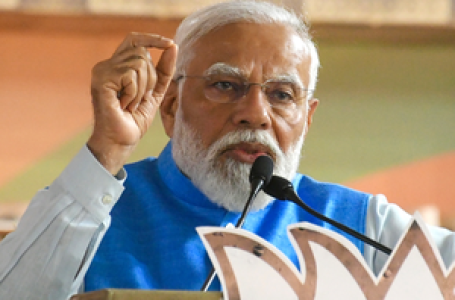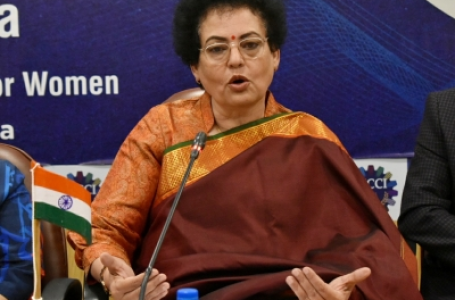June 28, 2018
New Delhi:The licence and permit raj might have ended for the big industry but for the poor, it is still continuing, says veteran civil servant NC Saxena, a former member of the national advisory council constituted under the headship of Mrs Sonia Gandhi during the UPA rule.
Talking to India News Stream, Saxena said the maze of laws and practices that confront an ordinary entrepreneur must be simplified.
”If a farmer wants to set up a brick kiln unit, or a rice shelling plant, and even cut a tree standing on his own private field, he can’t do it without bribing several officials. A simple operation of converting prosopis (Vilayati babul in Hindi – a wild shrub occurring mostly on wastelands, which grows more the more you cut it ) into charcoal in Tamil Nadu, which can give employment to thousands of people, requires permission from the Forest Department! ,” he pointed out.
He also cited the case of of Delhi Rickshaw pullers, in which the same kind of unreasonable restrictions exist. There are about six million of them but the Delhi government has put a limit of 99000 licences, which has resulted in about half a million rickshaws operating illegally in the city.
”It is an irony that there is no limit to the number of polluting cars, whereas the eco-friendly, and cost-efficient transport providing livelihood to the poor has a ridiculously low ceiling! ”, he said.
Saxena narrated one more incident highlighting arbitrary nature of rules and regulations for the poor. Some poor women in Odisha were arrested in 1995 because they brought hill brooms from forests to their home to make brooms as they were under the rules not permitted to stock it or sell this produce to anyone else except to a government contractor
Coming to farmers, he said the same discriminatory laws exist. In almost all states except Punjab, Haryana, Assam, Andhra Pradesh (but not Telangana) and Tamil Nadu, there are tenancy laws that do not permit land being leased to tenants for agriculture.
Saxena pointed out Maharashtra goes a step further and bans even sale of agricultural land to a non-agriculturist, and in almost all states, there are provisions that agricultural land cannot be used for industrial purposes, unless written permission is taken from the authority concerned, which takes a lot of time and encourages corrupt practices.
” What happens in such a situation that politicians and land mafia operate as middlemen to facilitate getting the required permission from government for the change in land use. Both these laws need to go. Industry serves a social purpose since employment generation per unit of land is higher in non-agricultural uses than in agriculture, and therefore change of land use should be free from all hassles,”.he said.
Answering a question, he said the licence raj also acts against the street vendors.
There are 10 million street vendors in India, but low license ceiling in most cities means more vendors hawk their goods illegally, which also makes them prone to the bribery and extortion culture under local police and municipal authorities.
Though a Street Vendors Act has been passed in 2014 clearly recognising that street vendors form a very important segment of the unorganised sector, little action has been taken by the states to implement the law, he said.
”It is a sad commentary on our laws that the informal sector which provides maximum employment is mostly declared as illegal and subject to the whims of law enforcing agencies. A Committee should be set up to identify specific laws and rules which hamper entrepreneurship. A systematic review needs to be undertaken to review the areas in which government must withdraw, albeit in a phased manner, and departments which need to be wound up should be defined,” he said.
Asked about the implementation of the Food Security Act, Mr Saxena, citing NSSO data, said the per capita cereal consumption of the poor in India is lower than the desired norm and it has seen no improvement over time, despite fall in poverty levels .
The calorie and protein intake of the poorest three deciles in 2011-12 was about 30 to 50% less than the consumption of the top decile, whereas the poor need more energy for harder manual work.
He further said that owning to insufficient financial devolution to the poorer states, they were spending much less on social programmes than the rich and advanced states.
For instance, in 2016-17 government spent ₹15,657 under NREGA on each rural poor in Kerala – the least poor state in India – as against a paltry ₹688 in Bihar and 889 in UP! The number of rural poor in Bihar is six times similar number in Tamil Nadu, but expenditure on NREGA in Tamil Nadu in 2016-17 is 2.5 times that of Bihar.
He said the Ministry must earmark NREGA funds for states on the basis of poverty, just as PMGSY allocations are in proportion to state-wise shortage of rural roads.
”Poor states suffer because of this ‘free-for-all’ approach as they are not able to compete with better governed states in attracting funds from the Centre,” Saxena said.



